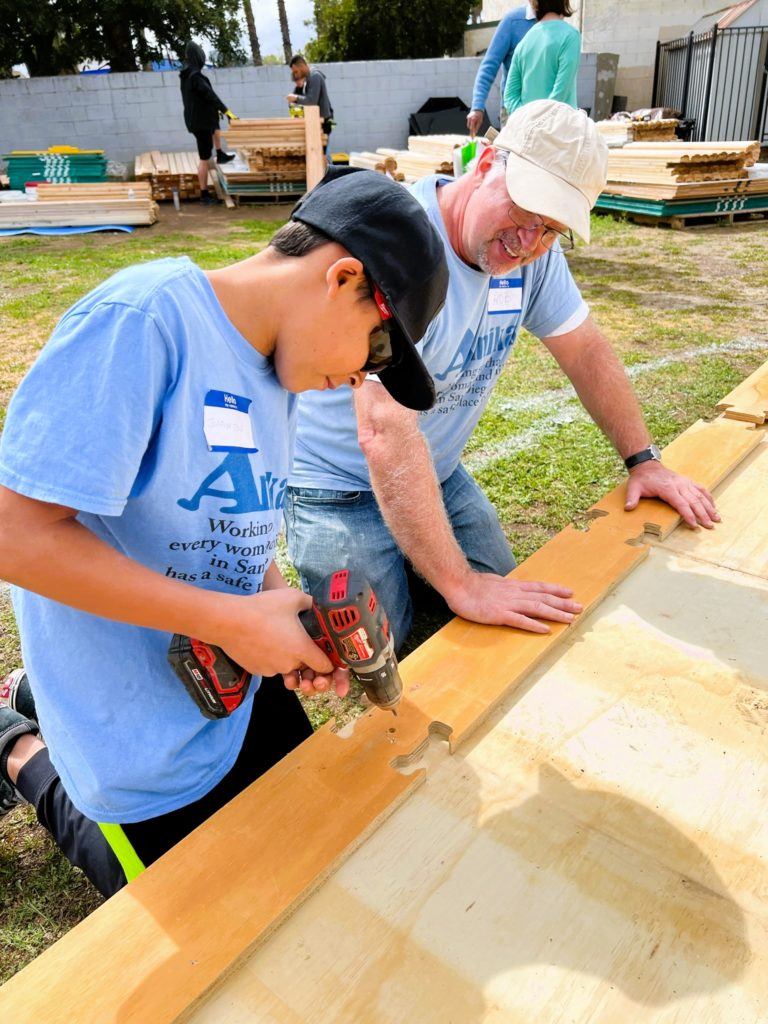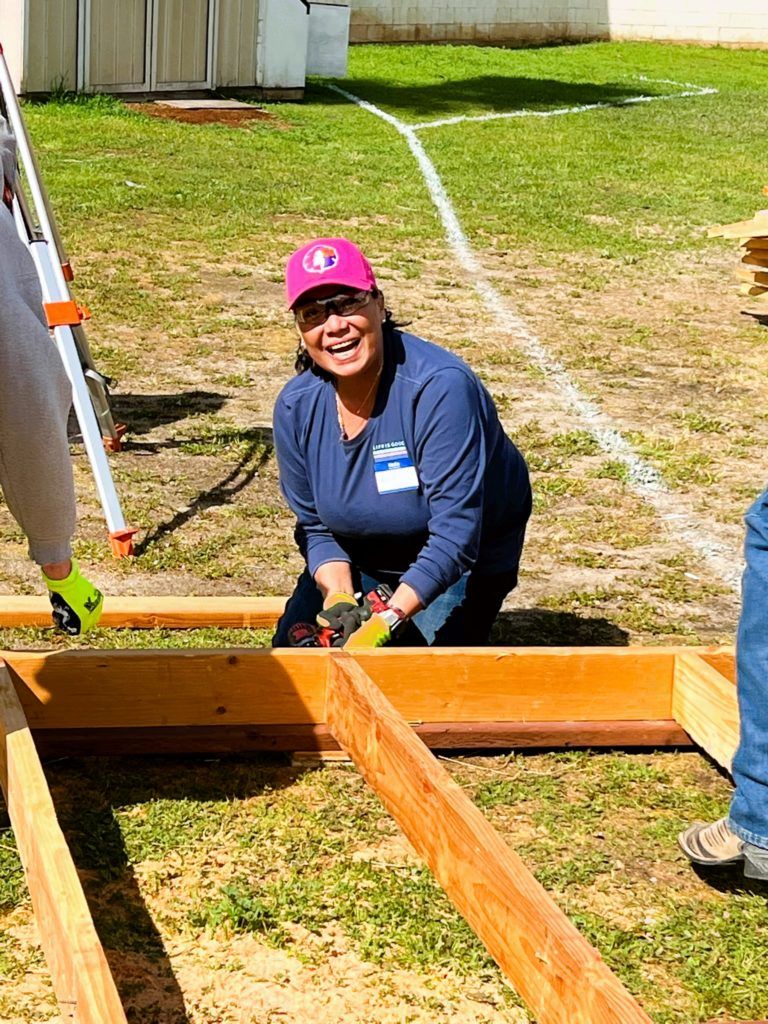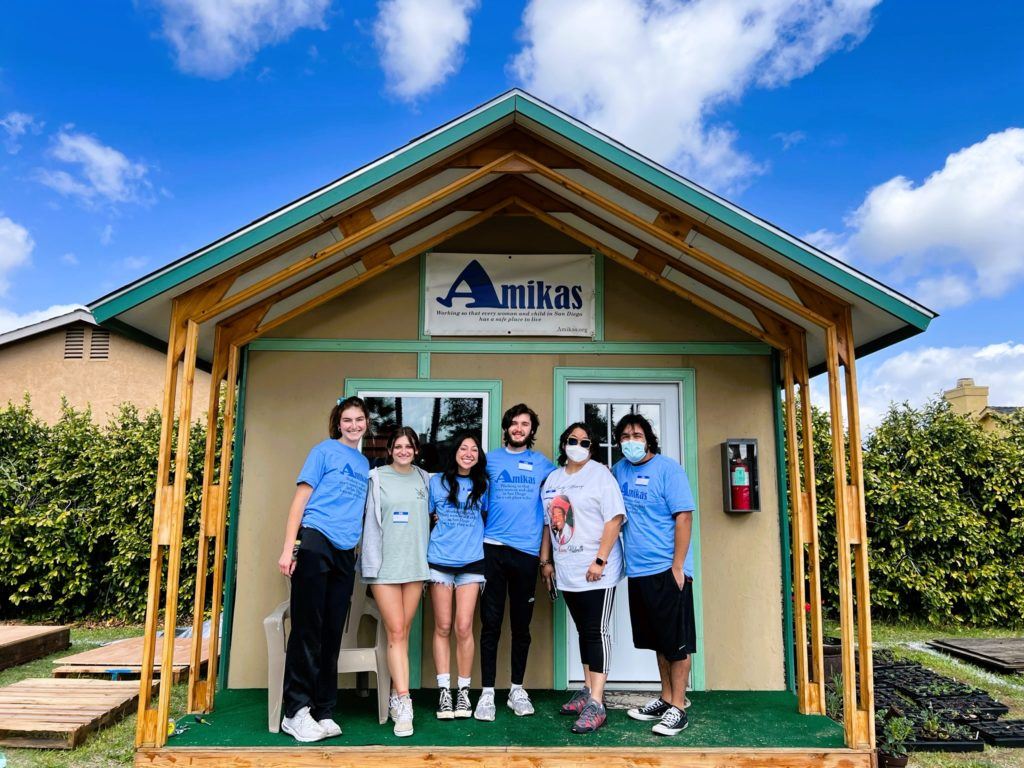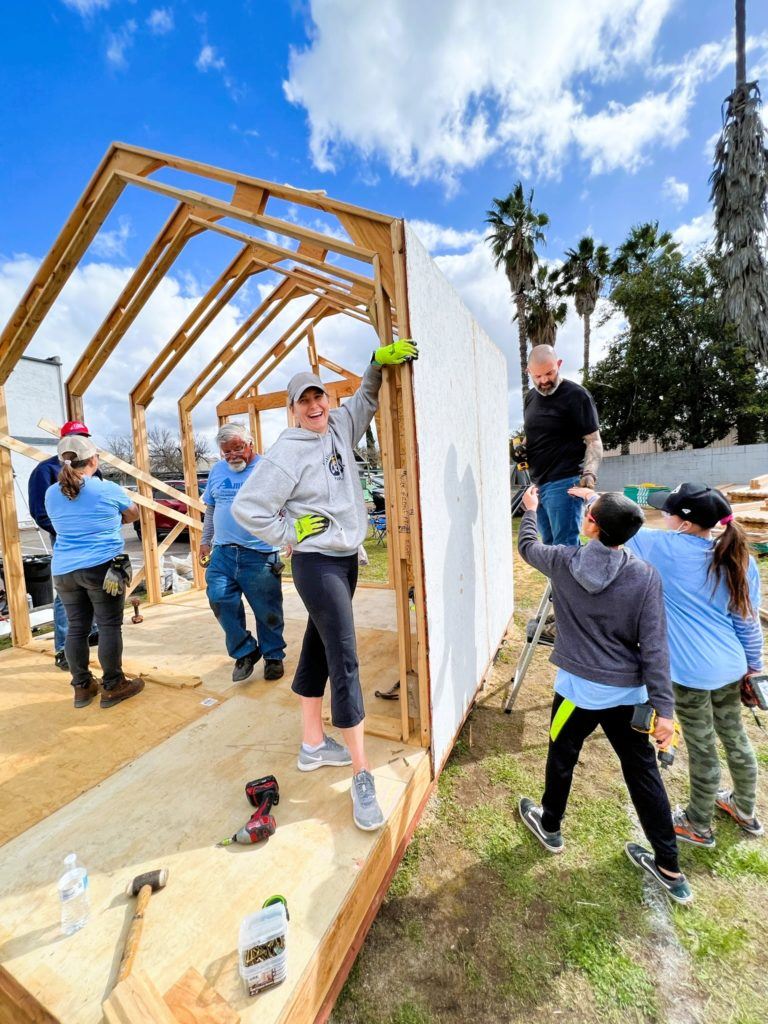
EL CAJON, Calif. (BP) – He only grunted — the homeless man who frequented Meridian Baptist Church’s weekly community meal in the fellowship hall.
“Every Wednesday night when he came, I would look, see him, and I would get my plate and go sit down next to him, say hello and talk to the other people at the table,” Senior Pastor Rolland Slade told Baptist Press. “But he wouldn’t talk. He didn’t speak to me. He acknowledged that I was there, kind of grunting. He did that for three months.”

Slade recalls when the man greeted him in return. “I was shocked. He said, ‘Good evening.’ After that, he said, ‘Pastor, I’m tired. I’m just tired of being on the street. It’s almost been three years.’ And he said, ‘I’m just tired and I just need help.’”
The man’s experience gives a glimpse into the lives of homeless people, a segment of the population that will benefit from Meridian Village, a pilot housing program under construction behind Meridian Baptist Church. In partnership with the nonprofit housing advocacy group Amikas, the city of El Cajon and social service agency Home Start of San Diego County, Meridian is hosting the pilot project that runs through December 2023 and will serve homeless single mothers and their children.
Women and children selected to participate will have secure lodging for up to 90 days, undergo an assessment and be connected with the services they need, including transitional or permanent housing.
“Our role in all of this – and not being the social service provider – our role is really to love them and to nurture them,” Slade said. “The Village is kind of a community within the community. It’s physically there on the church property. It will be separated by a fence, but we also will have our regular church activities.
“Our Sunday services, our Wednesday Bible studies, our food distribution, our Wednesday night community dinner, all of that, they will be invited to participate in. It will not be mandatory, but the thought is as we love them and care for them and build a relationship with them, they’ll want to be a part of what we’re doing at the church.”
Amikas has worked five years to establish the pilot program, securing permission in 2019 to build an unoccupied cabin behind Meridian Baptist in 2019. It took until 2021 to get permission to build six additional units, each measuring 12×12 feet with a front porch and 96 square feet of living space. Volunteers began construction in February. Electrical lines will be laid to serve the units, and residents will use plumbing facilities at the church.
Six units will house residents, with the seventh unit housing social service workers during the day and security at night.

Amikas treasurer Lisa Krogen told NBC San Diego of the lengthy journey to getting the program approved, expressing “a lot of highs and lows where we thought we had property and then we didn’t have property, trying to work with the city. There was just a lot going on, and there were times where we felt like it was never going to happen.”
Krogen hopes the project will inspire similar outreaches in other cities across the nation, a hope Slade has also expressed.
San Diego county’s homeless number about 8,500, according to the 2022 Point In Time Count by the San Diego Regional Task Force on Homelessness. El Cajon has the highest homeless statistics in the county, Slade said.
The program “really means we are being creative in helping to solve or find a solution, really, to this homeless crisis that we have,” he said. “We’re using land that we have been blessed to own for something that is creative and productive. Prior to us building the cabins, all we were doing was harvesting tumbleweeds. … That was the unofficial name of it, was tumbleweed village.”
Homeless people are multifaceted, sometimes suffering from various mental illnesses, and other times working fulltime jobs and unable to afford housing. Slade and Meridian Baptist ascribe to homeless people the dignity due them as children created in the image of God.
The homeless man who had refused to speak to Slade was a military veteran for whom life had become too much. By the time he returned Slade’s greeting, his immediate need was a signature on a piece of paper certifying he was homeless.
“He pulled out a wrinkled piece of paper and on that piece of paper was information about him being homeless. And he needed someone to certify that he was living on the street,” Slade said. “And so, I simply signed that document. … He came back after being absent for three weeks.
“I didn’t recognize him. He had cleaned up, shaved, cut his hair and everything. Different person. And he came and sat down at the table next to me. And said, ‘Hey pastor. Thank you.’” The man described himself as “doing much better.” He had gotten an apartment and a part-time job. “I had Veteran benefits available to me,” the man told Slade, “but I just checked out.”

Years earlier, while caring for his wife who was dying of cancer, the man’s son had been convicted of a crime and sentenced to life in prison. The man abandoned his home and lost everything.
“And he said he just got depressed. And he said you know what happens when you get depressed. You don’t go to work. You stop caring about stuff,” Slade recalled.
He had one question for Slade.
“Why did you sit down next to me every Wednesday for three months?” the man asked Slade. “I didn’t say anything to you. Matter of fact, I was probably pretty rude, just grunting at you and ignoring you.”
Slade told the man he was determined to get him to talk.
“He had said that since I was doing that, since I was sitting down next to him, he was determined not to talk to me,” Slade said.
“Basically, we had opposite challenges and, in the end, when he just got tired, I came through for him. And it was simple. All I had to do was sign that piece of paper.”

















